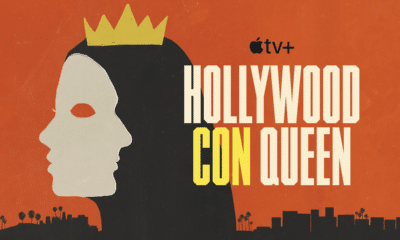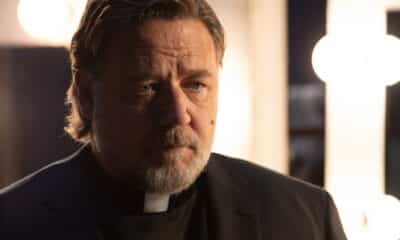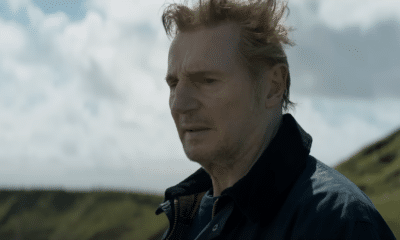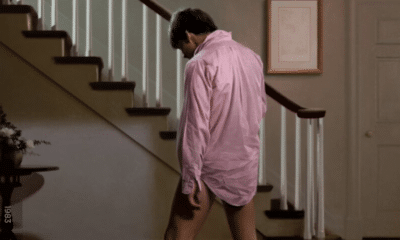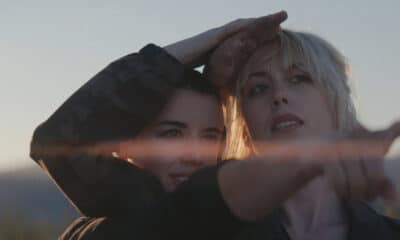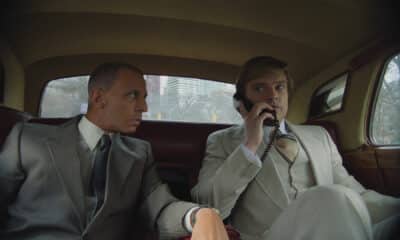Arrow Video Frightfest returns for its twentieth year of frightful delights later this month. Running from Thursday 22nd August to Monday 26th August, the film festival showcases the best and brightest in films that embrace the darker side of cinema. In the run-up to the festival, we at THN are bringing you a series of interviews with some of the filmmakers presenting the fruits of their labour to the Frightfest audiences.
The Perished screens at this year’s Frightfest on Monday 26th August. The film offers an interesting take on the taboo topic of abortion. Set in Ireland, a place where abortion is really taboo, it tells the story of a young woman, Sarah (Courtney Mckeon), whom after having a secret abortion in England, relocates to the country for some recuperation. The relaxation doesn’t last long though as the house is actually the site of a mass baby grave, and sensing her maternal nature, the supernatural infants begin to seek out a new mother.
It’s a film of two halves, the first playing more straight with a strong focus on Sarah’s trauma and relationship breakdowns. The scares slowly build up to an almighty crescendo that doesn’t shirk away from the horror. Both elements combine to make it a perfect pick to play to the Frightfest audience, and director Paddy Murphy couldn’t be a more ideal filmmaker to debut it. When we sat down ahead of the festival to speak with him, Murphy revealed himself to be a recent convert to the festival… a festival without which The Perished may never have been born.
What was it that made you get into film-making?
My earliest memories around film are around horror because when I was about five years old I think, I snuck behind the couch while my mother, my grandmother, and my aunt were watching A Nightmare on Elm Street. When they were leaving the room, they heard a little sound from behind the couch and they looked in and were like ‘Oh God! How long have you been there?’, and I was ‘the whole thing.’ I was traumatised, but I think it was the start of it. I think I’ve been chasing that for the last thirty years, trying to get back to being that scared again.
I just always loved storytelling, never specifically film. When I was young, I loved writing, I loved video games. Over the years I’ve done stuff in both those fields. I used to do some video game journalism. I also had a video game company for a few years. My attraction kept coming back to film. What I liked was that it’s a linear storytelling. You can tell something fairly directly. With games one of the issues I had – and other people find it liberating – you have to focus so much on the gameplay that story is often put to the background and forgotten about. I then made the changeover to scripts in around 2014.
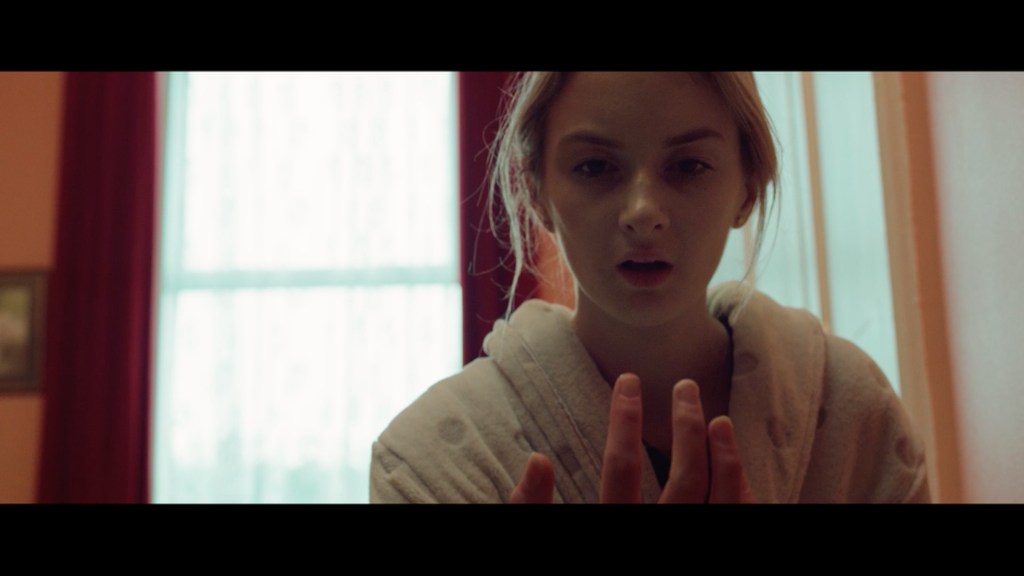
Mike Shawcross
On the surface, The Perished tackles the very timely topic of abortion and women owning their bodies, but then underneath all of that it’s more of a tragic tale about secrets and miscommunication. Why did you feel that these two topics would work together?
It’s mainly due to my experience here during the referendum last year. I saw that there was a lot of people that I knew who had gone through issues around this. Whether they had fifteen / twenty years ago had to go to the UK and have an abortion. Or whether it was something more horrific and that they had lost a baby. These people had different views, but they weren’t talking to each other about why they were landing on a decision in this referendum. Because they didn’t know each other’s stories, they were just berating each other, you know, ‘you’re awful you want to kill babies,’ and ‘you’re just a religious zealot,’ but nobody was actually trying to get to the root of why people’s perspectives were where they were. For me, I keep saying to people, as you said perfectly, the surface level is abortion but really the foundation of the film is that if you don’t talk about these subjects civilly, it can lead to horrific consequences. That’s kind of the metaphor within the film.
The Perished isn’t your traditional horror – there’s no blood and bodies everywhere – most of the film focuses much more on the drama of relationships. How did you go about peppering those elements, because they are present throughout, they’re just not in your face.
Some of my favourite films that I’ve come to love over the years are more horror films that touch on the ideas of grief and lose. In 2012, I lost one of my best friends and I went into a very dark place. I think what I felt at that moment, in that grief and loss, is the scariest thing. I’m not scared of the boogeyman anymore, or monsters jumping out of my closet, but I’m terrified of losing people. When you lose someone I feel you also lose part of yourself and that’s another component of that.
I looked at films like Don’t Look Now, which is one of my favourite films ever, that yet again isn’t peppered with jump scares, it’s more this imposing sense of dread throughout. You know something is coming or something bad is going to happen, but it’s not necessarily telegraphing it all the time. What I really wanted to do was I wanted to play it a little bit like what we are seeing is it something that’s in Sarah’s psyche? She’s been so affected by these events that she’s creating her own monsters. I think Courtney [McKeon], who plays Sarah, said it best when she said, ‘women that went through this really did have effectively ghost babies that followed them home from the UK. That stuck with them’. I thought that was a really great way of putting it. I wanted to play with that idea of – is she experiencing these things, or is it something more real, but leave that to the audience make up there mind.
From the very start, the main scare or horror part of the film was the scene when she’s in bed with sleep paralysis and the creature comes towards her. That was actually the very first idea for the whole film, ‘what if you were lying in bed and something was crawling towards you, and it just got up on the bed and cuddled you’. Just how weird that is. What kind of a creature would do that? At that time all these stories were coming out about the mass baby graves here, it was horrific and that idea then manifested that the thing that crawls into bed with you, if you were a young woman like that, would be babies looking for a mum.

Eventually we do arrive into the ‘true’ horror with a very Clive Barker / Hellraiser vibe. Would it be right to say you’re a fan of his work?
I’m such an overwhelmingly huge fan of Clive’s work. I remember when I had my Hellraiser VHS When I was about twelve / thirteen. I watched it so much, I wore it out. The tape faded and everything. Then I’ve read all his books obviously, and I’ve been lucky enough to have Nicholas Vince whom played The Chatterer in Hellraiser in one of two of my films. That was a dream come true for me because, to me, Clive Barker is like God. I’ve had one or two people say you can feel the Hellraiser influence and I’m very happy about that. I’m delighted because I do hold his work in the highest of regard.
What’s your favourite book?
My favourite book is Coldheart Canyon, but it’s so hard because I love Abaret, I love Weaveworld, I obviously love all the Books of Blood. If I have to pick one, it will be Coldheart Canyon because it’s the one I’d most like to [make]. If I got the chance down the line, and they were like ‘you can adapt any Clive Barker material what would you want to do’, I would want to do Coldheart Canyon. There’s just something really, really bleak about that one.

Mike Shawcross
When I was at university I made a couple of short films, one of them was originally meant to be filmed in and around an airport, but those places wanted a ridiculous amount of money. Some of The Perished takes place at an airport, did you strategically film there, or did you have to cough up the money?
No, we were really blessed with that if we’re honest. We went to Shannon airport, which is an airport just outside of Limerick. We went there and we weren’t going to go in and ask them. We were like, ‘they’re not going to let us film here full stop.’ We were thinking of ways we could film on the grounds of the airport, and then at the end of our location scout, we decided to pop in and ask so that we knew we had at least asked – and the manager couldn’t have been nicer. He said, absolutely, we were shooting the next week because we like to leave it late (chuckles) and so he said ‘come next Friday from 8pm till 12, and shoot whatever you want,’ and they didn’t charge us a penny, which was incredible because we were on a fairly limited budget. It was a blessing for that scene in particular because, for us, it felt like a little bit of validation of we got to shoot in this real location. I couldn’t be more thankful for Shannon airport.
Here it was thousands of pounds an hour landside, and almost double that air side; being students we just could not afford that. So when I was watching the film, I was just thinking ‘with such a small budget, how on Earth have they managed to film there?!’ Obviously you had really nice people that said ‘sure, come on in.’
I have to say that Ireland is great for that. I’ve heard horror stories from friends of mine whom live in Canada, and even some in the UK, about ‘we couldn’t shoot here, we couldn’t shoot there. We needed permits for this, permits for that.’ In Ireland, it’s so laid-back in that respect. You can wander into someone’s field and you’re like, ‘we’re just filming one scene, can we just’, and they’ll be ‘yeah, yeah, do you want to come inside for a cup of tea? Tell us all about it, oh you’re making a movie?’ It’s just everyone seems more fascinated by the concept that you’re making a movie that they don’t really get into ‘well you’ll have to pay me this much’ and ‘where’s your permits?’ It’s a blessing for guerrilla film-making I guess.
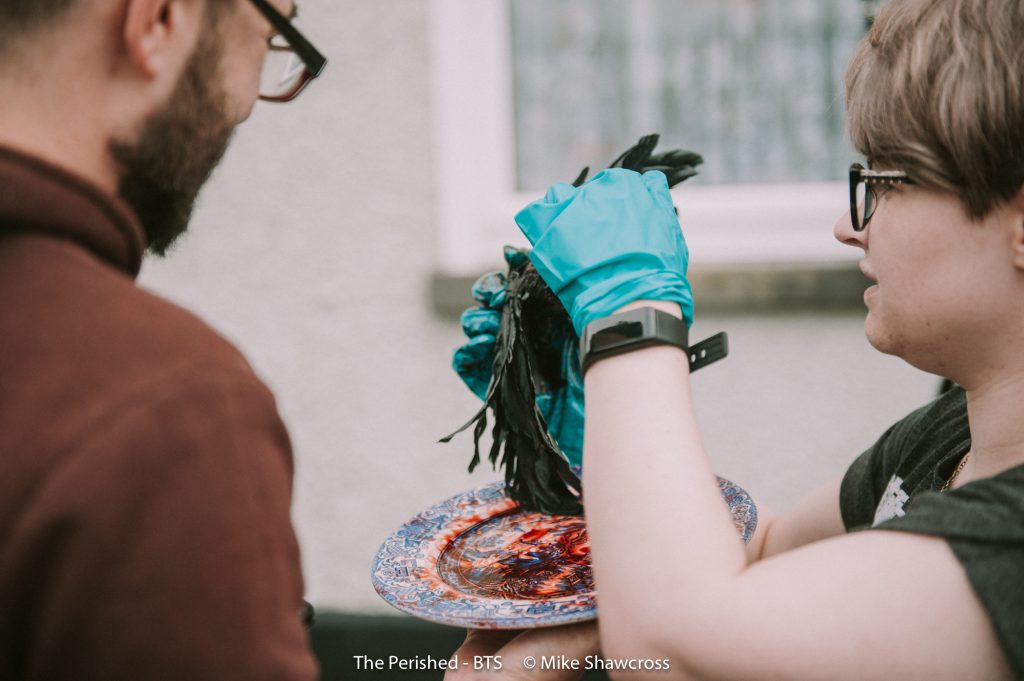
The world premiere is happening at Frightfest. What made you want Frightfest to be the platform that you debuted this film on?
I’ve known about Frightfest for a long time, from the Film Four days where you’d always see the ads and then the Horror Channel after that. I was always obsessed with this idea of Frightfest, but I never went. I never took the initiative to go. It wasn’t until 2016 that a friend of mine, Mike Shawcross, he’s been involved in all our shoots as a stills photographer. He was like, ‘come on, come on, come with me this year. Just get a ticket,’ so I did. Once I went once, I got completely hooked because the people were so wonderful.
It was so cool being able to meet the filmmakers. Just the way that Paul [McAvoy], Alan [Jones], Ian [Rattray] and Greg [Day] run it is just so wonderful because it is that we’re all on the same level here. There is no barriers between the filmmakers and everybody else. I went in 2016, and again in 2017. In 2017 I had just released my first feature film, which didn’t come out to much applause. I’m still super proud of it, and it’s a fun little movie called The Three Don’ts. Because of the reception of that, I was at a point where I was thinking about giving up film making. Then I met Joe Lynch whom directed Mayhem that year, and we were chatting outside the Phoenix, and Joe kind of – everyone had said this stuff to me before, but it was different hearing it from someone you look up to and respect – said ‘no, you made a feature, that’s an incredible accomplishment. Don’t give up! Go back home, start writing another script. It’s not like riding a bike, you will forget. Just get back into it!’ I literally came back home on 27th August 2017 and started writing The Perished maybe a day or two later. I kind of attribute The Perished existing to Joe Lynch kicking me up the arse outside the Phoenix.
Then I went back last year, and yet again I got to meet many more wonderful people like Jenn Wexler, whom did The Ranger. She was super helpful in pre-production, giving me advice and telling me, ‘oh no, you need to do this’. Even with the trailer and stuff, she gave me a lot of help. That’s what it is, you get to meet all these filmmakers who’ll give you honest critique and feedback, which is just so invaluable. I love the team that I work with and we all get along and it’s brilliant, but, if its only you guys, it’s very hard to look at something objectively. Once you bring in someone else, they poke holes in things, which is exactly what you need. Even with The Perished, I have to say Paul McAvoy from Frightfest was very helpful in giving critique and feedback on the film, in editing and getting it to the right place where we were happy with it.
For me, it was just since I started going in 2016, all I wanted was to premiere, even a short film at Frightfest. So my mind is just still blown, I’m still processing it and getting to grips with the fact that this feature is playing there. I could not be happier, it’s legitimately a dream come true.

Mike Shawcross
Technically though, you have two films screenings…
True, I guess technically I also have a short, but it’s part of a feature anthology, For We Are Many, from Hex Media.
Can you say anything about your segment?
Sure, I think they had to be about six minutes long, so that was our criteria going into it. It also had to be about a demon because of the whole, ‘for we are many, his name is legion,’ that was the basis of the whole anthology. I went into Irish mythology and looked at… it’s funny because Hellraiser came in a little bit here because I got that whole idea of ‘demons to some, angels to others’ and ran with that. I mean technically, aren’t most mythological creatures potentially demons? I came across this story I’d read as a kid about a character called The Morrigan, whom is the Goddess of death in Pagan religion.
I came up with a concept, without giving too much away, about a guy who seems to be possessed so his parents bring a priest to perform an exorcism on him. But he’s telling them, ‘no, I just have a drug-problem, that’s whats wrong with me’. They’re live-streaming this exorcism and things get really bad from there. Jessica Messenger played our monster in it – The Morrigan – and she’s fantastic. Absolutely brilliant.
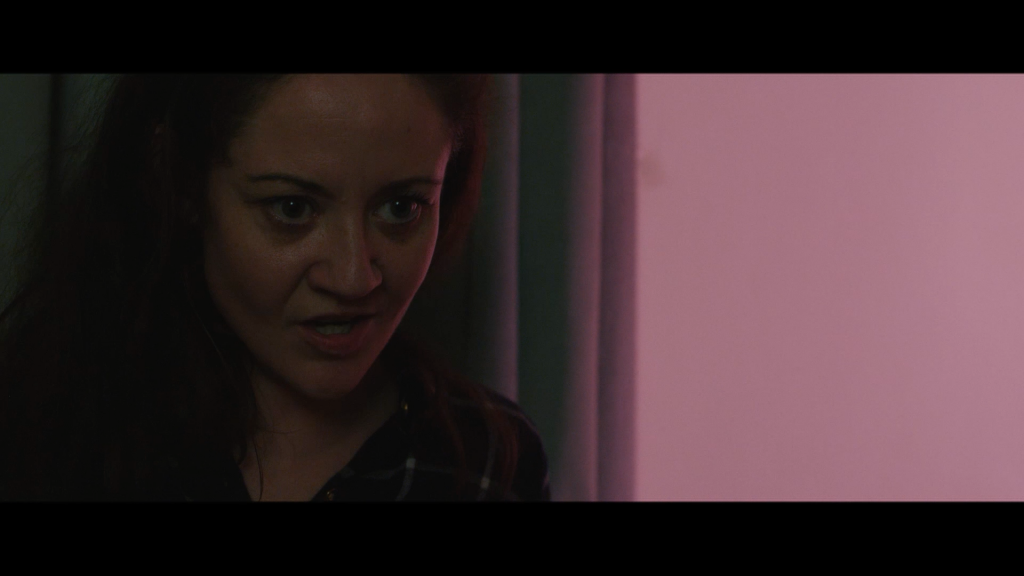
Mike Shawcross
You screen on the Monday, are you going to be able to relax?
I’m just looking forwards to people seeing The Perished and being able to tell me if they liked or disliked it. A big thing for me is, because the film is about communication, I just want people to be able to tell me their thoughts on it.
Once it has screened at Frightfest, what are the plans for the film?
Well we’re hoping for a good, long, healthy festival run. Fingers crossed. We’ve had some festivals reach out that are already interested from the news of a Frightfest premiere. But I’m imagining a lot will depend on the reaction to the film post-Frightfest, how well it’s received and taken on. Hopefully, we do have a few [lined up]; there’s one in Ireland that I would love to have a home town premiere at.
We’ve also had some sales agents and distributors take a look at the film. Fingers crossed again that we can get a good deal for the film and get the film out there to as wide an audience as possible. It’d be a great accomplishment for Irish independent film. Especially as the film wasn’t funded by the government at all. It’s completely self-funded, so it might show Screen Ireland that maybe it’s worth investing some funding into our next project.
The Perished screens at Arrow Video Frightfest on Monday 26th August 2019.
Kat Hughes is a UK born film critic and interviewer who has a passion for horror films. An editor for THN, Kat is also a Rotten Tomatoes Approved Critic. She has bylines with Ghouls Magazine, Arrow Video, Film Stories, Certified Forgotten and FILMHOUNDS and has had essays published in home entertainment releases by Vinegar Syndrome and Second Sight. When not writing about horror, Kat hosts micro podcast Movies with Mummy along with her five-year-old daughter.

Latest Posts
-


Apple TV
/ 7 hours agoApple’s documentary series ‘Hollywood Con Queen’ gets a trailer
Apple has debuted the trailer for its upcoming limited documentary series Hollywood Con Queen...
By Paul Heath -


Film News
/ 7 hours agoTrailer: Russell Crowe in ‘The Exorcism’
The movie has a release date set for this summer.
By Paul Heath -


Film Reviews
/ 18 hours ago‘In The Land Of Saints and Sinners’ review: Dir. Robert Lorenz (2024)
The film is released on Netflix this week.
By Paul Heath -


Home Entertainment
/ 1 day ago‘Risky Business’ and ‘Blow Out’ are getting the UK Criterion treatment
Risky Business and Blow Out will be released on UK Criterion 4K Blu-ray this...
By Paul Heath
